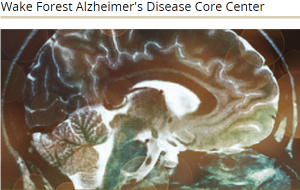Aging & Alzheimer’s awareness – Week 3 of 4
The three general stages of Alzheimer’s – source
Alzheimer’s disease typically progresses slowly in three general stages — mild (early-stage), moderate (middle-stage), and severe (late-stage). Since Alzheimer’s affects people in different ways, each person will experience symptoms – or progress through Alzheimer’s stages – differently.
To donate and/or join our team for the Winston-Salem ‘Walk to End Alzheimer’s’ on Saturday October 14th, 2017, click WSWGAA – WalkToEndAlz Thank You!
Mild Alzheimer’s disease (early-stage)
Common difficulties include:
- Problems coming up with the right word or name
- Trouble remembering names when introduced to new people
- Challenges performing tasks in social or work settings.
- Forgetting material that one has just read
- Losing or misplacing a valuable object
- Increasing trouble with planning or organizing
Moderate Alzheimer’s disease (middle-stage)
At this point, symptoms will be noticeable to others and may include:
- Forgetfulness of events or about one’s own personal history
- Feeling moody or withdrawn, especially in socially or mentally challenging situations
- Being unable to recall their own address or telephone number or the high school or college from which they graduated
- Confusion about where they are or what day it is
- The need for help choosing proper clothing for the season or the occasion
- Trouble controlling bladder and bowels in some individuals
- Changes in sleep patterns, such as sleeping during the day and becoming restless at night
- An increased risk of wandering and becoming lost
- Personality and behavioral changes, including suspiciousness and delusions or compulsive, repetitive behavior like hand-wringing or tissue shredding
Severe Alzheimer’s disease (late-stage)
At this stage, individuals may:
- Need round-the-clock assistance with daily activities and personal care
- Lose awareness of recent experiences as well as of their surroundings
- Experience changes in physical abilities, including the ability to walk, sit and, eventually, swallow
- Have increasing difficulty communicating
- Become vulnerable to infections, especially pneumonia
What to do if you notice these signs?
Schedule an appointment with your doctor.
You are not alone – Help and support is available
Care and support services are available, making it easier for you and your family to live the best life possible with Alzheimer’s or dementia.
24/7 Helpline: 800.272.3900
~Winston-Salem Wolfhounds GAA Health Information (#WSWGAAHEALTHINFO)

